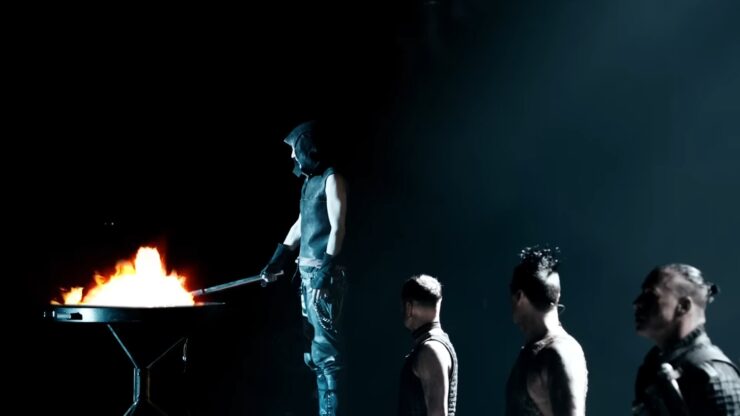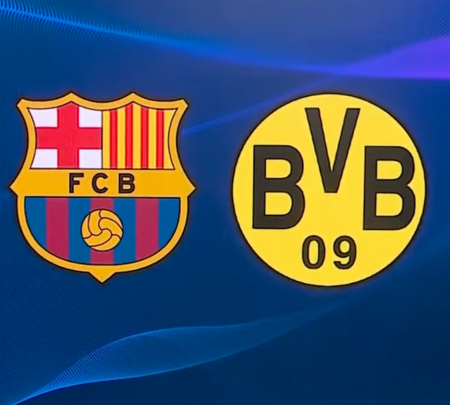The song “Du Hast” by the German Neue Deutsche Härte band Rammstein has been a subject of fascination since its release in 1997. The track is a blend of heavy metal and industrial elements, but what truly sets it apart is its lyrical complexity.
Similarly, the enigmatic nature of Ghost’s song lyrics has sparked significant discussions and interpretations among fans.
This blog post aims to dissect the layers of meaning in “Du Hast,” exploring its themes, wordplay, and cultural impact.
The Song’s Background
“Du Hast” is part of Rammstein’s second studio album, “Sehnsucht,” released in July 1997. The album was a commercial success, reaching number one in Germany and Austria and even achieving platinum status in the United States—a rare feat for a German-language album.
The Band’s Journey
Rammstein was formed in 1994 and gained initial success with their debut album “Herzeleid.” Their unique stage performances, often involving pyrotechnics, and their genre-defining music have made them a global phenomenon.
The Linguistic Intricacies
The Homophonic Wordplay
The title “Du Hast” is a homophone in German, sounding identical to “Du Hasst,” which means “You Hate.” The song plays on this duality, creating a layer of ambiguity.
In the song, “Du Hast” translates to “You Have,” while its homophone “Du Hasst” means “You Hate.”
The Vows and Refusals
The song is essentially about the singer’s refusal to marry his partner. When asked typical marriage-related questions like, “Will you be faithful all your days?” or “Will you love her even in bad days?” the singer’s answer is a resounding “No.”
The English Version
Interestingly, there is an official English version of the song, which is not a literal translation of the original. The English version is more forthright in expressing the mutual dislike between the two lovers in the song.
The Cultural Impact
Breaking into North America
“Du Hast” was the song that broke Rammstein into the North American market. It remains a staple in their live set and has garnered significant numbers on streaming platforms like Spotify.
The Song’s Versatility
The song’s pounding, militaristic drumbeat and catchy riff make it a dancefloor filler. It’s a track that fits right into the metal genre while also standing apart from it.
The Lyrical Dexterity
The song’s lyrics are a masterclass in ambiguity, playing on the dual meaning of “Du Hast” and “Du Hasst.” This has led to various interpretations and discussions among fans and critics alike.
The Song’s Influence in Popular Culture
The Matrix and Beyond
“Du Hast” has been featured in numerous films, most notably in “The Matrix,” which served as a significant introduction of Rammstein to American audiences.
The song’s industrial and sci-fi elements perfectly fit the movie’s setting, further solidifying its cultural impact.
A Nod to David Lynch and Quentin Tarantino
The music video for “Du Hast” was directed by Philipp Stölzl and features nods to David Lynch’s “Lost Highway” and Quentin Tarantino’s “Reservoir Dogs.”
These references add another layer of complexity to the song, making it a subject of discussion not just among music fans but also among cinephiles.
The Song’s Legacy in Cover Versions
The song has been covered by various artists, including Motionless in White for “Punk Goes 90s Vol. 2” in 2014 and even by Lizzo while performing in Germany in 2024. These covers demonstrate the song’s enduring appeal and its ability to cross genres and cultures.
The Band’s Perspective
A Song About Loyalty
According to guitarist Richard Kruspe, “Du Hast” is actually about a kind of loyalty. He mentions that Rammstein is like a family with a strong sense of tradition. The song reflects that promise of faith known from weddings integrated into this family.
The Challenge of English Lyrics
Singer and songwriter Till Lindemann once mentioned that writing Rammstein songs in English was like asking “Buddha to kill a pig or something.”
The band did attempt to write the song in English, but it didn’t work, and they decided to stick with German.
The Song’s Emotional Depth
The song explores the detriments of marriage and the developing separation and resentment drawn from a long-term relationship. It plays on German wedding vows, adding another layer of emotional complexity.
The Song’s Evolution Over Time
Live Performances
“Du Hast” has been a staple in Rammstein’s live performances since its debut on April 9, 1997, in Amsterdam, Netherlands.
Over the years, the band has employed various stunts during the song’s live renditions, ranging from pyrotechnics to theatrical elements. The intro is always a bit longer in live performances, adding to the song’s dramatic flair.
Chart Resurgence
Interestingly, the song has seen a resurgence in charts even decades after its release. In 2022, it charted in Sweden, and in 2024, it made its way to the charts in Finland and Lithuania. This speaks volumes about the song’s enduring appeal and its ability to captivate new generations.
Fan Theories and Interpretations
The song’s ambiguous lyrics and multiple layers of meaning have led to a plethora of fan theories and interpretations.
Some see it as a critique of traditional marriage vows, while others view it as an exploration of the complexities of long-term relationships. The song’s ability to spark such diverse interpretations adds to its mystique.
The Music Video’s Narrative
A Tale of Crime, Masks, Love, and Betrayal
The music video for “Du Hast” is a cinematic experience in itself. Directed by Philipp Stölzl, the video features a narrative that includes elements of crime, masks, love, violence, and betrayal.
It begins with Rammstein drummer Christoph Schneider pulling up outside an isolated building with a woman. Inside, he finds the other band members wearing masks, which they later remove. The video is filled with intense imagery, including explosions and injections.
The Woman’s Fate
The video also features a woman waiting nervously outside the building where the band members are. She is seen pacing, smoking, and eventually sitting on the ground as dusk falls. The video ends with the band members walking past her, leaving her fate ambiguous and adding another layer of complexity to the song’s narrative.
The Video’s Impact
The music video has been described as a blend of “crime, masks, love, violence, and betrayal,” and it complements the song’s complex themes perfectly. It has been a subject of discussion and interpretation, much like the song itself.
Facts and Trivia
- “Du Hast” reached a peak position of #5 in Germany and was a top-10 hit in Austria and Canada.
- The song was featured in David Lynch’s neo-noir cult film “Lost Highway,” which helped boost its popularity in North America.
- Rammstein is one of the first German bands to produce music within the Neue Deutsche Härte genre.
FAQs
How did “Du Hast” perform on the U.S. charts?
While “Du Hast” achieved significant success in European countries like Germany and Austria, its performance on the U.S. charts was not as prominent.
However, it did gain a lot of traction in the U.S. through its inclusion in movies like “The Matrix,” which helped introduce Rammstein to American audiences.
Has “Du Hast” won any awards?
There is no publicly available information to suggest that “Du Hast” has won any specific music awards. However, its commercial success and cultural impact have made it one of Rammstein’s most iconic songs.
Are there any collaborations featuring “Du Hast”?
As of my last update in September 2021, there are no official collaborations featuring “Du Hast.” However, the song has been covered by various artists across different genres, showcasing its wide appeal.
What instruments are prominently featured in “Du Hast”?
“Du Hast” features a blend of heavy metal and industrial elements, including distorted guitars, pounding drums, and synthesizers. The song’s instrumentation contributes to its intense and dramatic atmosphere.
How does “Du Hast” compare to other songs in the Neue Deutsche Härte genre?
“Du Hast” is considered a defining track in the Neue Deutsche Härte genre, blending elements of heavy metal and industrial music. Its lyrical complexity and thematic depth set it apart from many other songs in the genre.
Has “Du Hast” been used in any social or political movements?
While “Du Hast” is a song rich in meaning and interpretation, there is no widely recognized usage of the song in social or political movements. Its themes are generally considered to be more personal and relational rather than political.
Final Words
The song “Du Hast” by Rammstein is not just a musical composition; it’s a complex tapestry of linguistic, emotional, and cultural elements. Its intricate wordplay and themes have made it a subject of endless discussion and interpretation.
Whether you’re a fan of heavy metal, a linguistics enthusiast, or someone intrigued by the complexities of human relationships, “Du Hast” has something to offer.


















